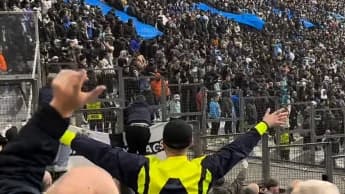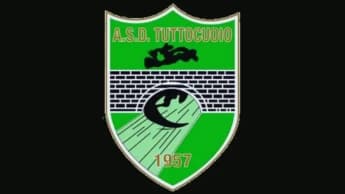
Founded in 1909, Borussia Dortmund has become a symbol of excellence in football, blending tradition with a strong focus on youth development and an exciting playing style.
Borussia Dortmund, commonly known as BVB (Borussia Ballspielverein), stands as one of the most renowned and successful football clubs in Germany, boasting a rich heritage since its establishment in 1909. Situated in the industrial city of Dortmund in North Rhine-Westphalia, the club exemplifies German football excellence, driven by its fervent supporters and a tradition of captivating, offensive play. Borussia Dortmund is well-regarded for its capacity to merge youth development with elite talent, forming a squad capable of competing at the very highest levels.
Borussia Dortmund boasts one of the largest and most passionate fan bases in Europe, with the famous “Yellow Wall” of supporters transforming Signal Iduna Park into one of the most formidable stadiums in international football. Throughout its history, Borussia Dortmund has experienced both triumphs and challenges, yet it has remained a prominent club in Germany and Europe, continuously striving for success in both domestic leagues and international competitions.
Historically, Dortmund's playing style has emphasized an attacking approach, characterized by high pressing and rapid counter-attacks. This philosophy was particularly highlighted during Jürgen Klopp's tenure, which saw the team secure consecutive Bundesliga titles in 2011 and 2012. Despite facing challenges, especially from Bayern Munich's dominance, Borussia Dortmund has consistently upheld its reputation as one of the premier football clubs in Germany.
Club Accomplishments
Borussia Dortmund boasts an illustrious legacy of both domestic and international achievements, having secured numerous prestigious titles. Their ascent to the pinnacle of European football has been defined by spectacular victories, unforgettable moments, and key milestones that have contributed to the club's unique identity.
Borussia Dortmund's achievements extend beyond their trophy cabinet; their influence on the development of football in Germany and the wider football community has established them as one of the most esteemed clubs globally.
Strengths and Limitations
A notable aspect of Borussia Dortmund is its dedication to developing young talent. The club boasts an impressive youth academy that has nurtured many world-class players, such as Jadon Sancho, Christian Pulisic, and Erling Haaland, all of whom played crucial roles in Dortmund’s achievements before advancing to larger clubs. This emphasis on cultivating players from within has enabled the club to remain competitive, even with a smaller budget in comparison to more affluent teams.
Dortmund is renowned for its dynamic and electrifying attacking football, which emphasizes speed, creativity, and directness. The club frequently utilizes a high-pressing approach, allowing them to quickly regain possession and take advantage of opponents through swift counter-attacks. This emphasis on fast-paced play has established them as one of the most thrilling teams to watch in Europe. The "Yellow Wall" at Signal Iduna Park is celebrated for its remarkable atmosphere. As one of the largest stadiums in Europe, it is always filled with fervent supporters who foster an unmatched environment during home matches. The passion of the fans and their steadfast support for the team contribute significantly to Borussia Dortmund's achievements.
Throughout different managerial tenures, Dortmund has demonstrated a remarkable capability to adapt their tactics. Whether implementing Jürgen Klopp's high-pressing strategy or Lucien Favre's more structured style, the team has showcased flexibility in their game plans, modifying their approaches according to the specific opponent and competition they face.
Although Dortmund is known for its offensive strength, they have occasionally struggled defensively. The high press they employ can leave them susceptible to rapid counter-attacks, and individual defensive mistakes have cost them vital points in important matches, especially in their contests for the Bundesliga title. Dortmund has received criticism for not being able to stay composed during crucial moments, particularly in close title races. Their difficulty in consistently challenging Bayern Munich in certain seasons, especially following their successes in 2011 and 2012, points to a possible deficiency in mental toughness during high-pressure situations.
Throughout the years, Dortmund has frequently struggled with injuries to key players. The loss of essential personnel, particularly in vital roles such as attack and defense, has hindered their performance in multiple seasons. This issue has been notably evident with star players like Marco Reus, who has faced ongoing injury challenges.
Tactics and Approach to Play
The playing style of Borussia Dortmund is fundamentally based on their dedication to rapid, direct, and offensive football. The team is recognized for its assertive tactics, especially in pressing opponents and swiftly transitioning from defensive positions to attacking plays.
Memorable Matches
Looking Forward
Looking forward, Borussia Dortmund has the capacity to further enhance its legacy of achievement. With a well-organized youth academy and a commitment to cultivating top-tier talent, the club is set for ongoing competitiveness in both domestic and international football. The recent influx of promising young players is a positive sign for the future, as talents like Jude Bellingham and Giovanni Reyna are poised to uphold the club's longstanding tradition of youthful energy.
Nonetheless, Borussia Dortmund faces the ongoing challenge of closing the distance to Bayern Munich in the Bundesliga, a team that has dominated the landscape of domestic football for a significant portion of the past ten years. For Dortmund to achieve lasting success, they must focus on strengthening their defensive capabilities and enhancing their mental resilience, particularly in closely contested title races and pivotal European matches.
The future of Dortmund will largely hinge on their ability to remain competitive on the European stage. While they have frequently advanced to the later stages of the Champions League, striving to reach the pinnacle of their past achievements, such as the victory in 1997 and the semi-final in 2013, is a viable goal. With a robust squad, an innovative approach to the game, and the backing of one of the most fervent fanbases in Europe, Borussia Dortmund is poised to remain a formidable presence in global football for many years ahead.





